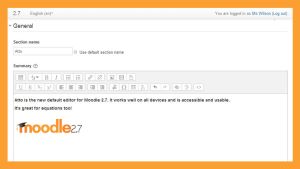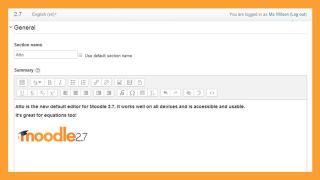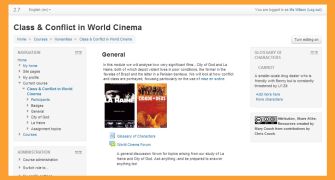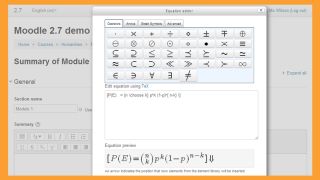|
|
| (344 intermediate revisions by more than 100 users not shown) |
| Line 1: |
Line 1: |
| <noinclude></noinclude>các bạn ơi vào đây lấy tài liệu Java
| | ==Testing image and list== |
| | [[File:Atto_27.jpg|thumb|left]] |
| | * Item 1 |
|
| |
|
| My first '''sandbox''' attempt.
| | [[File:Atto_27.jpg|thumb|left]] |
| | # Item 1 |
| | # Item 2 |
| | # Item3 |
|
| |
|
| test '''test''' [[test]]
| | ==More testing== |
| | Testing email notification in the 34 /en/ wiki -- [[User:Sam Student|Sam Student]] ([[User talk:Sam Student|talk]]) 08:28, 17 November 2017 (UTC) |
| | here is a video [https://www.youtube.com/watch?v=Woap4QYsyOM/ Connected pages] |
|
| |
|
| ---- | | Testing email notification in the 36/en/ wiki --[[User:Sam Student|Sam Student]] ([[User talk:Sam Student|talk]]) 14:42, 7 December 2018 (UTC) |
| dvnsedn
| |
|
| |
|
| [[Image:ndfcdnVC]] | | [[Test link]] |
|
| |
|
| ==My attempt at editing==
| |
|
| |
|
| Rush the washing Russell, rush the washing Russell
| |
|
| |
|
| | -Testing- |
|
| |
|
| | -Testing 2- |
| | {| cellpadding="2" cellspacing="0" border="1" |
| | !Col12 |
| | !Col2 |
| | |- |
| | |Test1 |
| | |Test2 |
| | |- |
| | |Test1 |
| | |Test2 |
| | |- |
| | |Test1 |
| | |Test2 |
| | |} |
| | ==Functions and Examples== |
| | Following are the functions that constitute the basic log API for Moodle. |
| | <code> |
| | add_to_log($courseid, $module, $action, $url='', $info='', $cm=0, $user=0) |
| | user_accesstime_log($courseid=0) |
| | get_logs($select, array $params=null, $order='l.time DESC', $limitfrom='', $limitnum='', &$totalcount) |
| | get_logs_usercourse($userid, $courseid, $coursestart) |
| | get_logs_userday($userid, $courseid, $daystart) |
| | </code> |
| | The basic working of these functions can be categorized into two categories:- |
| | # Adding data to logs |
| | # Fetching data from logs |
| | Let us take a deeper look into both of these:- |
| | <pre>something in pre tags</pre> |
| | <code>and something in code tags</code> |
|
| |
|
| ===[[Image:Tip2.gif]] TIPs:=== | | <math>Insert formula here</math>==First edit in sandbox== |
| *'''Tip 1.''' This is all very new! </noinclude><includeonly>this is hidden text in sandbox<</includeonly><includeonly><noinclude>
| | An additional edit to sandbox |
| *'''Tip 2.''' When you want all your students to work on the same materials at the same time, this would be a good format to choose
| | This is where you can edit the content. |
| *'''Tip 3.''' See tip 2
| | Another edit to sandox. |
| *'''Tip 4.''' Bring a lot of time if you want to practise in the sandbox.
| | One more edit to sandbox |
| | ==Testing gallery== |
| | ==Testing gallery==8/11 |
| | ==Testing gallery==8/11 again |
| | <gallery mode="packed-hover"> |
| | File:Atto_27.jpg|Atto |
| | File:Clean27.jpg|Clean |
| | File:MathJax.jpg|MathJax |
| | </gallery> |
| | ==Bootstrap stuff== |
| | <div class="alert alert-block"><span class="close" data-dismiss="alert">×</span>'''Warning!''' Click the cross to close this label ...</div> |
| | <div class="alert alert-info">Info here...</div> |
| | ==Nowiki tags== |
| | <code><nowiki>[[Category:Category name]]</nowiki></code> |
| | <nowiki><code>[[Category:Category name]]</code></nowiki> |
|
| |
|
| :''TIP:'' Keep the format simple, icons are nice but KISS.--[[User:chris collman|chris collman]] 15:06, 9 October 2008 (CDT)
| | <code>[[Category:Category name]]</code> |
|
| |
|
| The quick brown fox jumps over the lazy dog.
| |
| The quick brown fox jumps over the lazy dog.
| |
| The quick brown fox jumps over the lazy dog.
| |
| The quick brown fox jumps over the lazy dog.
| |
| The quick brown fox jumps over the lazy dog.
| |
|
| |
|
| The lazy dog jumps over the quick brown fox.
| | [[de:Hauptseite]] |
| Yes indeed, the lazy dog does jump over the quick brown fox.
| | [[es:Zona de Pruebas]] |
| | | [[fr:Documentation]] |
| Pack my egg box with five dozen liquor jars.
| |
| | |
| ==Other sandbox attempts==
| |
| This site has copyrights. Let's add some more text here...
| |
| | |
| The development history of Moodle goes back to ancient Egyptian times. There were astrologers queueing up to moodle and doodle. Eventually what came out of this soul-wrenching long-drawn struggle was a basic programme that incorporates teaching pyramid builders - both learners and heads of teams.
| |
| | |
| [[Moodle]] is a [http://download.moodle.org/ software package] for producing internet-based courses and web sites.
| |
| | |
| It is particularly useful as a virtual classroom where trainers and teachers can create courses or learning activities that learners/students access and participate in. This may include eportfolios, assignments, tests or quizzes that are then e-assessed by the tutor and feedback provided therein.
| |
| | |
| Moodle has revolutionalised teaching and learning in that most institutions have signed up to it as a vehicle for instruction. The accessibility, practicality and experimental nature of moodle encourages and motivates new users.
| |
| | |
| It's an ongoing development project designed to support a [[Philosophy|social constructionist]] framework of education.
| |
| | |
| Moodle is provided freely as [http://opensource.org/docs/osd Open Source] software (under the [http://www.gnu.org/copyleft/gpl.html GNU Public License]). Basically this means Moodle is copyrighted, but that you have additional freedoms. You are allowed to copy, use and modify Moodle provided that you agree to: '''provide the source to others; not modify or remove the original license and copyrights''', and '''apply this same license to any derivative work'''. Read the [[License|license]] for full details and please contact the [http://moodle.org/user/view.php?id=1&course=1 copyright holder] directly if you have any questions.
| |
| | |
| Moodle can be [[Installing Moodle|installed]] on any computer that can run [http://www.php.net/ PHP], and can support a SQL type database (for example [http://www.mysql.com/ MySQL]). It can be run on [[Complete_install_packages|Windows and Mac]] operating systems and many flavors of linux (for example [[RedHat Linux installation| Red Hat]] or [[Debian GNU/Linux installation|Debian GNU]]). There are many knowledgable [http://moodle.com/partners/ Moodle Partners] to assist you, even [http://moodle.com/hosting/ host your Moodle site].
| |
| | |
| I am trying to add a link, so let's start by opening this nice gardening website of "Mein schöner Garten":[http://www.jatc153.com]!
| |
| | |
| == Next Section ==
| |
| | |
| Complete install packages are available from Moodle Downloads, located on a tab for each of the operating systems. The packages are designed for new installations on a server or standalone computer. Please note the standard distributions only contain the Moodle code.
| |
| | |
| This document provides instructions for using the Windows packages. Separate instructions are available for Mac OS X packages.
| |
| | |
| For installation on a Windows 2000 or Windows 2003 server it is good practice to perform a manual install (see the manual installation section in Windows Installation).
| |
| | |
| After installing the Windows package, note that there are other downloads (e.g. additional modules and plugins) that may involve more customization of configuration files.
| |
| | |
| The complete install packages allow Moodle to be installed, along with the prerequisites that includes a web server, database and scripting language (Apache, MySQL and PHP in this case). Several versions of the complete install package are available. The instructions on the download page provide guidance on which version is likely to be most suitable.
| |
| | |
| Note: The latest complete install package version components, may not be backwardly compatible. Always check version compatibility of e[[Image:Example.jpg]]ach component if you intend to develop materials on a later version of Moodle than the version installed on your "main" Moodle site. In short, complete install packages are designed for first time install on a "clean" machine.
| |
| End of added text.
| |
| [www.google.com][[Image:Example.jpg]][[Media:Example.ogg]]
| |
| ----
| |
| Again
| |
| [http://www.example.com link title]
| |
| | |
| ----
| |
| This looks like MediaWiki. Thank you.
| |
| ::walks like a mediawiki, must be a mediawiki [[Image:Biggrin.gif]]--[[User:chris collman|chris collman]] 17:53, 23 October 2008 (CDT)
| |
| [[Image:Example.jpg]]
| |
| </noinclude>
| |
Testing image and list
- Item 1
- Item 2
- Item3
More testing
Testing email notification in the 34 /en/ wiki -- Sam Student (talk) 08:28, 17 November 2017 (UTC)
here is a video Connected pages
Testing email notification in the 36/en/ wiki --Sam Student (talk) 14:42, 7 December 2018 (UTC)
Test link
-Testing-
-Testing 2-
| Col12
|
Col2
|
| Test1
|
Test2
|
| Test1
|
Test2
|
| Test1
|
Test2
|
Functions and Examples
Following are the functions that constitute the basic log API for Moodle.
add_to_log($courseid, $module, $action, $url=, $info=, $cm=0, $user=0)
user_accesstime_log($courseid=0)
get_logs($select, array $params=null, $order='l.time DESC', $limitfrom=, $limitnum=, &$totalcount)
get_logs_usercourse($userid, $courseid, $coursestart)
get_logs_userday($userid, $courseid, $daystart)
- Adding data to logs
- Fetching data from logs
Let us take a deeper look into both of these:-
something in pre tags
and something in code tags
 ==First edit in sandbox==
An additional edit to sandbox
This is where you can edit the content.
Another edit to sandox.
One more edit to sandbox
==First edit in sandbox==
An additional edit to sandbox
This is where you can edit the content.
Another edit to sandox.
One more edit to sandbox
Testing gallery
==Testing gallery==8/11
==Testing gallery==8/11 again
Bootstrap stuff
×Warning! Click the cross to close this label ...
Info here...
Nowiki tags
[[Category:Category name]]
<code>[[Category:Category name]]</code>




